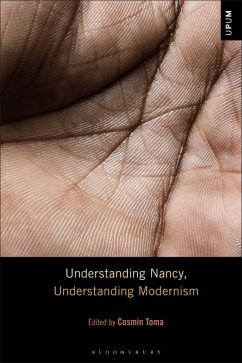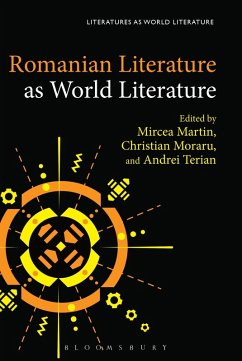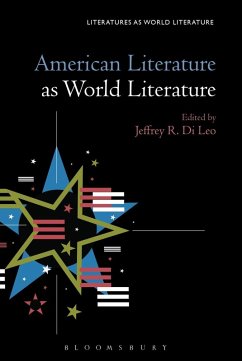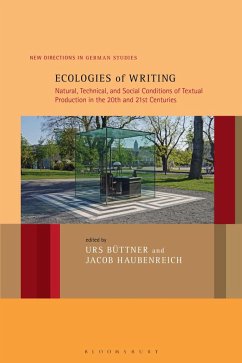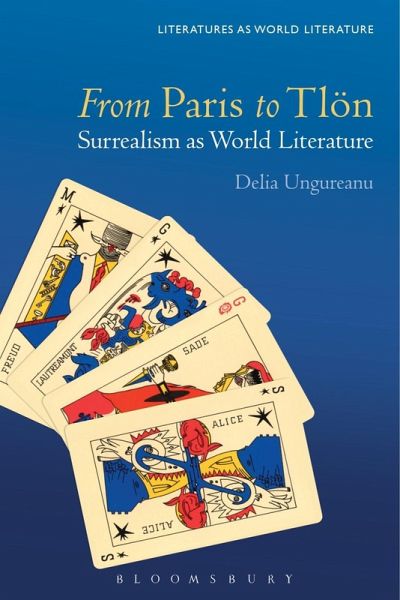
From Paris to Tlön (eBook, ePUB)
Surrealism as World Literature

PAYBACK Punkte
15 °P sammeln!
Best International Debut in 2017 (awarded by Romanian General and Comparative Literature Association) Most Prestigious Publication in the Humanities (awarded by the Senate of the University of Bucharest) Surrealism began as a movement in poetry and visual art, but it turned out to have its widest impact worldwide in fiction-including in major world writers who denied any connection to surrealism at all. At the heart of this book are discoveries Delia Ungureanu has made in the archives of Harvard's Widener and Houghton libraries, where she has found that Jorge Luis Borges and Vladimir Nabokov w...
Best International Debut in 2017 (awarded by Romanian General and Comparative Literature Association) Most Prestigious Publication in the Humanities (awarded by the Senate of the University of Bucharest) Surrealism began as a movement in poetry and visual art, but it turned out to have its widest impact worldwide in fiction-including in major world writers who denied any connection to surrealism at all. At the heart of this book are discoveries Delia Ungureanu has made in the archives of Harvard's Widener and Houghton libraries, where she has found that Jorge Luis Borges and Vladimir Nabokov were greatly indebted to surrealism for the creation of the pivotal characters who brought them world fame: Pierre Menard and Lolita. In From Paris to Tlön: Surrealism as World Literature, Ungureanu explores the networks of transmission and transformation that turned an avant-garde Parisian movement into a global literary phenomenon. From Paris to Tlön gives a fresh account of surrealism's surprising success, exploring the process of artistic transfer by which the surrealist object rapidly evolved from a purely poetic conception to a mainstay of surrealist visual art and then a key element in late modernist and postmodern fiction, from Borges and Nabokov to such disparate writers as Gabriel García Márquez, Haruki Murakami, and Orhan Pamuk in the 21st century.







